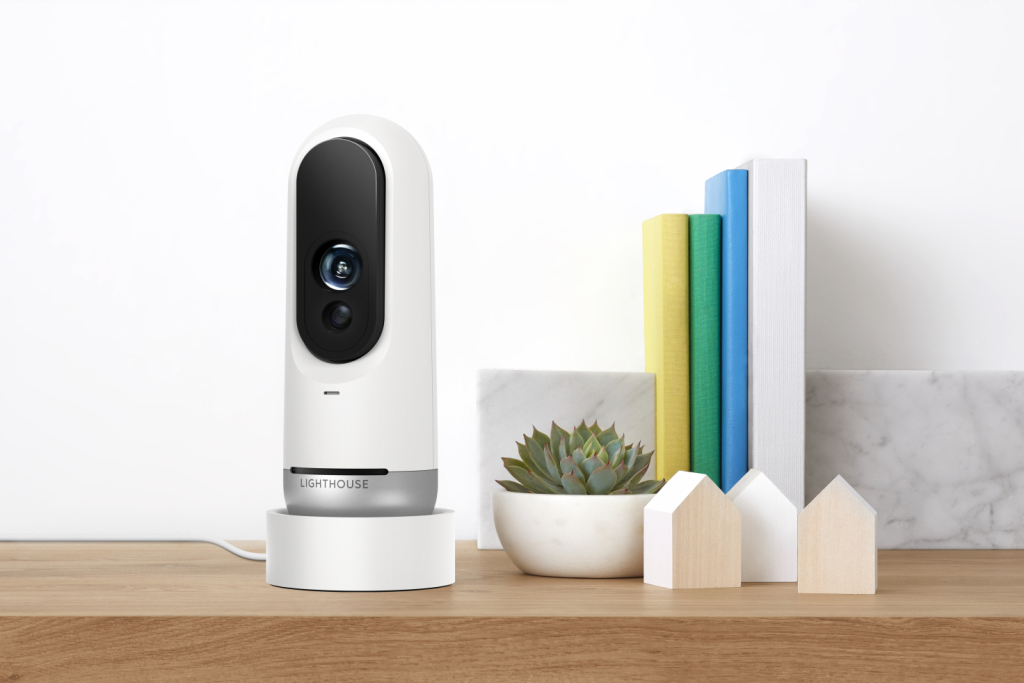
What happens if you take a home security camera, throw it out, and head back to the drawing board with engineers from the world of self-driving cars behind the wheel?
That’s the basic premise behind Lighthouse. They’re trying to build a camera that, thanks to its 3D-sensing lasers and a mountain of machine learning chops, has some sense of what it’s looking at. After years in the works, it’s going on sale this morning.
One aspect of Lighthouse thats particularly unique is in how you’re meant to peruse your footage; it’s aiming to be less of a security camera, and more of an assistant. Rather than scrubbing a timeline, you ask the in-app natural language processing system (think Google Home or Alexa, but it only cares about your stored footage) for what you want. You ask it things like “Did the dog walker come on Wednesday?”, or “When time did the kids get home yesterday?”, and it responds with relevant footage.
You can also set up alerts based on what’s going on. Want a heads up if someone new is in the house? Say “Ping me if you see someone you don’t recognize.” Or you can set them up based on what doesn’t happen, with queries like “Ping me if the kids don’t get home by 5”.
Getting that done requires some pretty intense machine learning; fortunately, the company’s co-founders Alex Teichman and Hendrik Dahlkamp have some experience there. Teichman completed his PhD in Sebastian Thrun’s lab at Stanford; Dahlkamp was the first engineer at Google X and a winner of DARPA’s self-driving Grand Challenge.
Are people ready for a camera that strives to really know what it’s looking at? Nest has been tinkering in this space for a while now, with things like facial recognition and AI that tries to tell whether the motion in the room is a human moving around or just a TV that got left on. But Nest rolls things out ever so slowly, one new AI-powered feature at a time — and with good reason: if there’s a line in the sand where people start getting weirded out, no one quite knows where it is yet.
We first wrote about Lighthouse back in May of last year.
The pricing they ended up with is a bit unique, so a breakdown: $299 gets you the Lighthouse itself. After that, you can either pay $10 a month for 30-days of cloud video storage and cloud-assisted AI, or you can cough up a one-time fee of $200 up front (the equivalent of 20 months at the month-to-month rate) for a lifetime plan.
Lighthouse let us borrow a unit to check out, so check back in a few days for our impressions.


